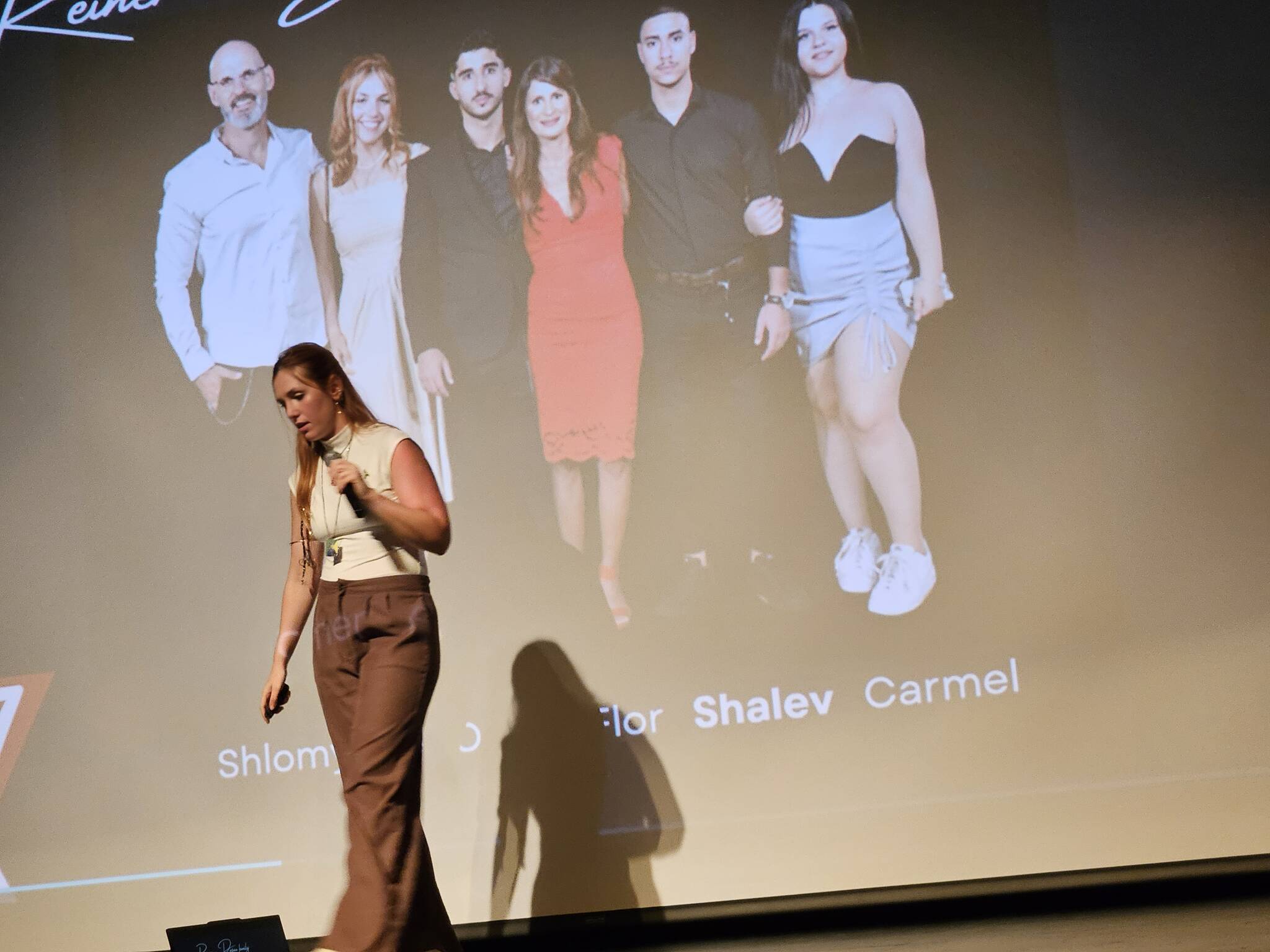When the missiles started appearing in the sky, many of the young men and women at the Nova music and dance festival near the Gaza border were not worried. They thought it was just another rocket attack and would be repelled by Israel’s “Iron Dome.” Many kept dancing.
But soon dozens of hang gliders started soaring in from Gaza, flown by armed men. Pickup trucks and motorcycles filled with terrorists began flooding through the border fence. The small security force at the concert told everyone to leave the area immediately. The music stopped. But it was too late. The killing began. Panic and chaos ensued.
Hamas terrorists invaded the concert grounds and surrounding towns, slaughtering anyone they found, including children. Women were raped and tortured, or taken hostage. The barbarity was brutal and horrific.
Ofri Reiner, 22, had gone to the concert with four friends. She hadn’t intended to go, but a young man whom she had a “crush” on had invited her. The five of them drove together and spent the night dancing with hundreds of others. It was a “rave” party full of energy, joy and love — until the massacre began, when they had to run for their lives.
In a riveting account delivered to a capacity audience at the Stroum Jewish Community Center on Sept. 15, Reiner recalled how she and her friends miraculously survived the onslaught. They got in their car and sped away, but roads were blocked by traffic jams or armed gunmen. They were hit by another car. They drove across a field but got stuck in the dirt. They began fleeing on foot.
At one point, Reiner and a girlfriend “had to pee” so they crouched behind some bushes. But terrorists saw them and began firing. They ran again, and somehow got away. She twisted her ankle and was limping in pain. A large group of people walked for 11 miles for four hours straight without any water. At one point, they found some orange trees and greedily sucked the juice from the oranges. “It was the best orange I ever tasted,” Reiner recalled.
She didn’t know it at the time, but her brother, a soldier in the Israeli Defense Force, was stationed at a small outpost just a few miles away. Terrorists overran the place and he died along with fellow IDF soldiers.
Duki Dror, a documentary filmmaker, and his friend Yosi Bloch, made a decision two days after the attack: They would collect video footage and make a documentary film.
“This was the most documented mass killing in history and people still denied it,” said Dror in an introduction to his film, “Supernova,” which was shown at the SJCC. They interviewed survivors and collected videos taken on cell phones. They also gained access to “Hamas footage” taken by terrorists who were captured or killed.
“The process was torturous, but documentary is our job,” Dror said. It is a must-see for anyone who wants to know what happened on Oct. 7. It is graphic but the most disturbing scenes of bodies and blood are blurred. “It’s a documentary of survival and bravery,” said Dror. “History needs to see how cruel humanity can become.”
The film is one of the most extraordinary documentaries ever made, remarkable for its visceral reality. Some of the young people took videos and “selfies” while hiding in bushes, trying to avoid being seen by terrorists. One group of 30 crowded into a concrete shelter built to hold 10. But terrorists forced the door open and threw in hand grenades, killing almost everyone. One young man hid beneath dead bodies and survived. Two young women huddled on the floor of a port-a-potty for 9 hours while bullets pierced walls above their heads. Miraculously, they were not discovered.
Reiner is now touring the country and speaking in public, sponsored by the Jewish National Fund USA. Her personal account is raw, candid, emotional, and simply unforgettable.
She told the SJCC audience: “You’re here to bear witness. How do we proceed from here? In America, we are now going through a period of anti-Semitism. I will keep insisting on bringing more light, although it takes a lot out of me.
“Everything I believed in crashed in front of me, shattering my core beliefs. I called it my spiral.” Reiner often wonders why she survived while others did not.
Reiner said she is now suffering Post Traumatic Stress Disorder (PTSD), has trouble sleeping, is scared to hear sirens, and feels “the presence of death.”
But she is working toward what she calls post traumatic growth. “It’s a positive change that can bring more meaning to life.” She went to a retreat of survivors this summer and found comfort. She has begun doing artwork and had an exhibit in an art gallery. “I’m proud of what I’m doing. I’m proud of being brave.”
But she believes that Oct 7 “didn’t leave any family whole. It touches everybody in the room. Israel will never be the same. Grief takes a lifetime. The question for the Jewish nation is: Can it move on and get stronger, or will it collapse?”
As the one-year anniversary of the attack approaches, everyone should watch this film and hear the words of this brave young woman. The film is being streamed on the SJCC’s website (sjcc.org/arts) through Oct. 31. A link to Ofri’s presentation is included. Don’t miss it.
Mercer Island resident John Hamer is a former Seattle Times editorial writer/columnist and co-founder of the Washington News Council. He is not Jewish, but has visited Israel twice.



